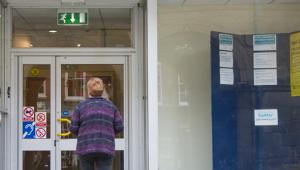In two cases, judges ruled that the policy, which reduces housing benefit for bedrooms deemed ‘spare’ in what ministers officially call the abolition of a spare room subsidy, was discriminatory.
One case concerned the impact of the reduction on a woman, named as ‘A’ in court papers, due to a panic room in her home to protect her from a violent ex-partner.
The other case was brought by Paul and Sue Rutherford as their benefit had been reduced because they had a room used by overnight carers for a seriously disabled grandchild.
Both cases argued that the policy, which was first introduced in April 2013, had unlawfully discriminated against women and domestic violence victims, and children in need of an extra room for care purposes.
The appeal court judges today said they were allowing the appeals because the “admitted discrimination in each case ... has not been justified by the secretary of state”.
The Department for Work and Pensions was given permission to challenge the court of appeal’s ruling at the Supreme Court.
A spokesman said the department “fundamentally disagreed” with the court’s finding that application of the law contravened the European Convention on Human Rights.
“We know there are people who need extra support. That is why we are giving local authorities over £870m in extra funding over [through discretionary housing payment] the next five years to help ensure people in difficult situations like this don’t lose out.”




















